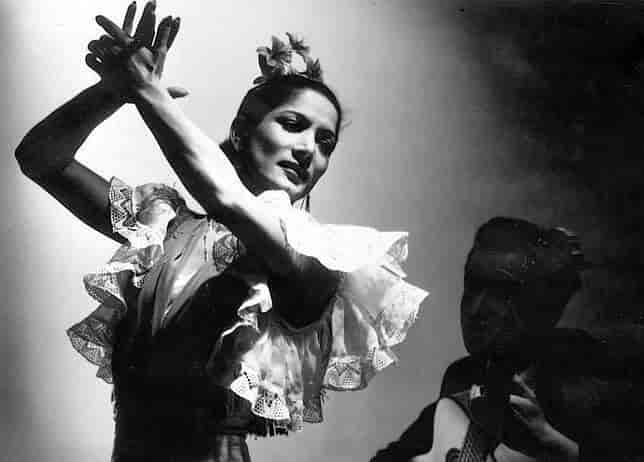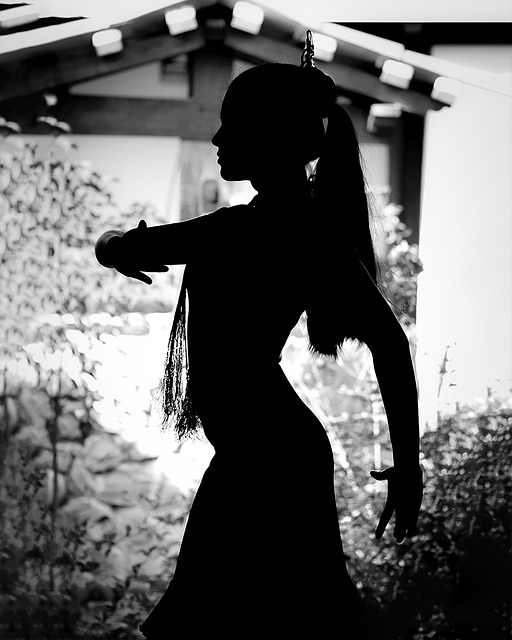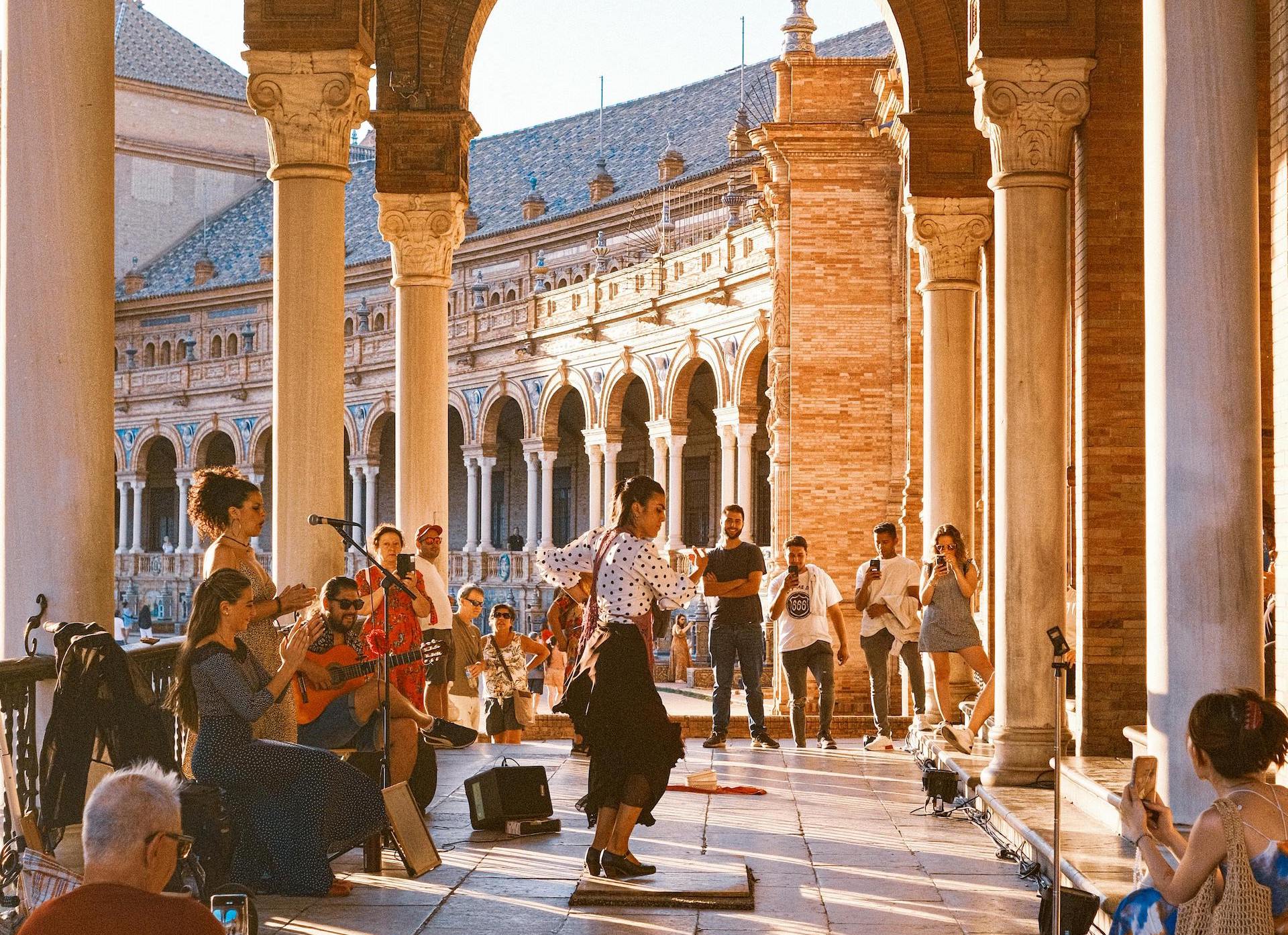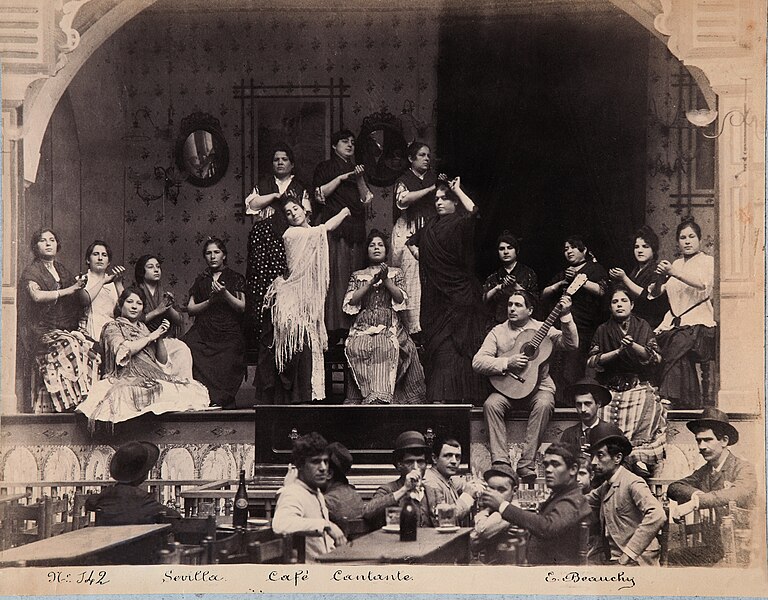Few words stir up more passion, more argument, more what the hell does it actually mean than flamenco.
It’s not just music.
Not just dance.
It’s something else entirely.
But where does the word even come from? That’s when things get murky.
I love a good music mystery. And flamenco? It’s full of them. Its history isn’t neat. It isn’t tidy. It’s got layers, contradictions, stories passed down like old songs no one wrote down properly. And its name? That’s one of the biggest debates of all.
There are theories. So many theories. Some make sense. Some are nonsense. Some feel like the truth but with just enough uncertainty to keep you guessing.
The Arabic connection? Now that is interesting.
The Arabic Theory: Flamenco as “Wandering Country Person”
Blas Infante—big name in Andalusian history—reckoned flamenco came from Felah-Mengus . Arabic for “wandering country person.”
The tourism boards love this one. It’s got that poetic, romantic ring to it. But is it actually true?
I went digging. Turns out:
- Falah (فلاح) = farmer, peasant
- Manḥūs (منحوس) = unlucky, cursed
- Minkum (منكم) = from among you/us
So… close enough? Maybe. The idea of an “outcast peasant” kind of fits when you think about the Moors after the Reconquista—stripped of their culture, their language, their place in society. Forced into the shadows. Flamenco was born in those shadows.
Antonio Manuel Rodríguez—historian, writer, doesn’t hold back—argues that some people don’t want flamenco to have Arabic roots. Too complicated. Too uncomfortable. Spain’s relationship with its Moorish past has always been… messy.
His words hit hard:
“In the throat and in the soul lie the most difficult things to plunder.”
Think about that for a second.
And then there’s Olé! Some say it comes from “Allah.” An echo of something older, deeper, still alive in the music today.
The guitar? That came from the oud, a North African instrument brought over during Muslim rule.
When you put all the pieces together, it stops feeling like a theory and starts feeling like something obvious.
Flamenco as the “Flamingo Bird”
This one’s weird, I won’t lie.
Some say flamenco comes from flamenco —the Spanish word for flamingo. Apparently, early dancers had a hunched, birdlike posture.
Is it true? Probably not. Is it funny? Absolutely.
Flamenco as “Flashy” or “Showy”
Another theory says flamenco came from old Spanish slang. Back in the 18th and 19th centuries, flamenco meant something like “flashy” or “pretentious.”
Given the drama, the costumes, the over-the-top intensity of it all? I can see it.
Flamenco as “Flemish”
Now we’re getting into the classic explanations.
During the reign of King Carlos I (who was also Charles V of the Holy Roman Empire—man had titles), Spain had a lot of Flemish people hanging about. The theory?
- Maybe flamenco took inspiration from Flemish fashion and movement.
- Maybe “flamenco” was used ironically—calling dark-haired gypsies “Flemish” as a joke.
- Maybe “flamenco” was just a word for foreigners in general.
Does it fit? Kind of. But does it feel right? Not really.
So what’s the real answer?
Honestly? The Arabic theory sticks with me the most.
Maybe because it’s the least talked about. Maybe because it forces people to see flamenco as more than just “Spanish.” It’s bigger than that. Deeper. It carries echoes of exile, resistance, survival.
But flamenco is contradictions. It’s movement, music, history, rebellion, heartbreak, pride. Maybe every one of these theories is a little bit true in its own way.



